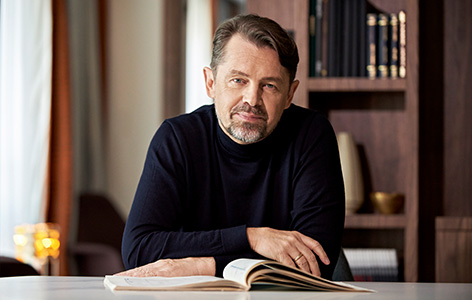| 11. 04. 2024 19:00 p.m. |
| Kino Vesmír |
| from 400 CZK |

A4 From my life
Change of soloist
Eliška Cílková is the author of another piece composed for the JPO jubilee. The novelty will be followed by one of G. Mahler’s most frequently performed orchestral cycles. The songs from it will be performed by the Austrian baritone Paul Armin Edelmann, the well-known conductor and regular guest of the JPO Andrey Boreyko will take the baton.
Eliška Cílková
New composition on commission
Gustav Mahler
Songs about dead children
Bedřich Smetana
String Quartet No. 1 in E minor “From My Life” arranged for orchestra (George Szell)
Paul Armin Edelmann – baritone
Janáček Philharmonic Ostrava
Andrey Boreyko – conductor
Iván Paley – baritone
On the occasion of its anniversary, JPO approached Eliska Cílková, who is gaining recognition not only as a composer but also as a documentary filmmaker, with a request for a new composition. Her films have won the Czech Film Critics’ Prize, and her compositions have succeeded, for example, in the Musica Nova competition. From her early sound installations and experiments with electroacoustic music, Cílková has moved on to a more classical approach to music.
The new work will be followed by one of Gustav Mahler’s most frequently performed orchestral cycles. Songs of Dead Children is based on a collection of poems by Friedrich Rückert, who wrote it in despair at the death of his two children. The songs will be performed by the Astrian baritone Paul Armin Edelmann, and the baton will be taken by the renowned Polish-Russian conductor and regular guest of the Janáček Philharmonic Andrey Boreyko.
The musical end of the evening will be the First String Quartet “From My Life” by Bedřich Smetana. Its orchestral version was created in the early 1950s by the Hungarian-American conductor George Szell. In the interwar period, he also worked at the New German Theatre in Prague, but he became especially famous as a conductor of the Cleveland Symphony Orchestra in the USA. Smetana’s autobiographical confession was written two years after the composer’s deafness and, thanks to Szell’s instrumentation, took the form of a breathtaking four-movement symphony.




